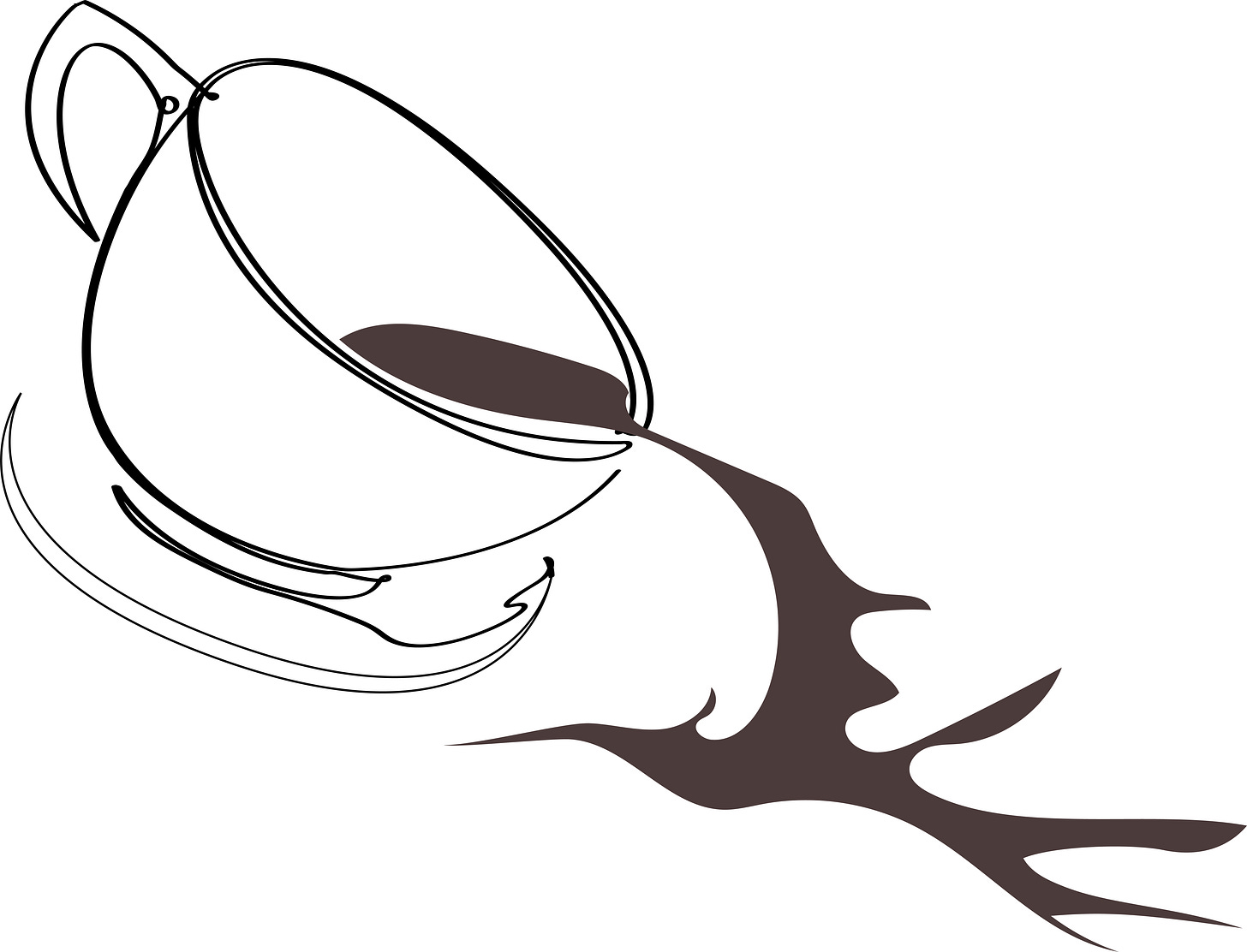“You can’t pour from an empty cup.”
I was quite late to this saying, but when a mentor of mine first let me into this little secret, it had the exact weight of a revelation for me. Before this, I could not account for why I always felt like I was only treading water and never making any progress.
Expectations
For whatever reason,1 academia insists that you work from a deficit—of time, of energy, of patience—which only feeds the culture of feeling perpetually behind. The expectations set for you by the department and university are often exceedingly aspirational, to put it generously, or in some cases, outright absurd.
If you start from less than 0, any progress you make, no matter how extraordinary, will never feel like enough. It won’t satisfy you because the threshold is too high—you end up needing more than your average metaphorical cupful to fill up. Add to this the fact that scholarship is grounded in argumentation and demands that you defend your work from all possible angles, and you get an exceptionally stressed out workforce.
Judgement
Perhaps the worst part of this whole process is how quickly it gets internalized by newcomers and how irremovable it is once it has taken root. As grad students and early-career scholars, we’re made to feel terrible, even guilty, every moment we’re not writing. The productivity monster never takes a day off and makes sure you don’t either (to the point that you become your own worst critic, doling out judgement like Minos). Academia is able to ensnare entire lives simply by convincing us that writing and research are the only important activities and that anything else one does is a leech of time.
The strange thing about this is that it doesn’t even foster productivity. It just makes people sad and anxious, exponentializing self-judgement and unhappiness.
The best expectations are realistic
The most valuable thing I’ve learned since taking a position in a company that sells things is that the best expectations are realistic.
In an actual business, any business, it’s not helpful to set exceedingly aspirational goals because businesses need to allocate resources around an actionable plan in order to get a product to market in a given timeframe. So if the goal is too lofty, and a good percentage of the team can’t meet it, chances are high that the whole project will have to go back to the drawing board and be refitted with a more realistic timeline and an appropriate set of steps.
So how do you put the best practices of design and development into your writing practice? One way that I’ve found is to make writing an exciting challenge, something akin to exercise. This approach acknowledges the difficulty of the task—building muscle/writing books is hard work—but also entices you with a hearty reward—healthy muscles/full drafts are sexy. Like any challenge, if you want to succeed in it, you have to set realistic goals and meet them consistently. This will look different for every writer; some may set word count goals, or minutes-writing goals.
Personally, I make sure I save a few hours a week to do research and write, but not at the expense of all the other things I love. And that’s the difference between writing for tenure and writing for yourself. You can put the things you love on the same shelf as your ambitions without feeling like you’re making a bad decision. Because in the end, all the things that give you joy or peace or rest fill up that creativity mug and motivate you to keep writing.
Writing will always be a challenge, so getting into the habit of incorporating other things that you care about into your free time can help you sustain the ambition and determination it will take to write a book. It also alleviates the pressure that comes with self-judgement because you are no longer reducible to a single activity or identity. You can be a scholarly writer and a gymnast/baker/soccer mom/movie buff.
You can’t pour from an empty cup, so fill yours up with the good stuff for when you do have to pour (or for the occasional spill). Not at all coincidentally, the reason why this post is late this week is precisely because I chose to fill rather than pour, and I think everything came out the better for it.
There are many measurable reasons why this is but that is a diatribe for another post, possibly one with a guest appearance of a Marxist friend of mine.


